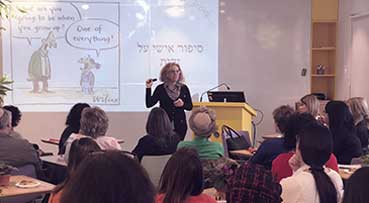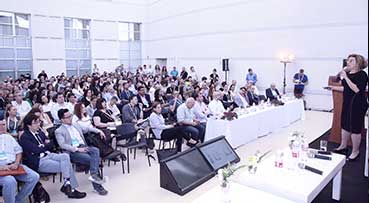The end of the screenwriters’ strike isn’t just a Hollywood drama; it’s an indication of the labor battles destined to unfold globally as technology continues to disrupt various industries and professions. Understanding what’s at stake, what to fight for, and what to relinquish is more crucial than ever.
Since the onset of the Industrial Revolution, labor unions have been instrumental in reshaping work environments to adapt to technological shifts. They’ve successfully campaigned to abolish child labor, limit workday hours, and establish fair employment conditions. However, as we navigate an era of rapid change, many unions find themselves increasingly out of step with the present-day realities. Data from the United Nations World Labor Organization confirm that union membership is in decline across the globe, including in Europe. The crux of the issue is that contemporary labor struggles, which often aim to maintain the status quo, are ill-suited to an evolving workspace.
So it’s not surprising that the Writers Guild of America’s (WGA) concerns over AI’s encroachment into creative roles open a Pandora’s box of questions surrounding intellectual property, job security, and the evolving relationship between human talent and automation. While the new contract between the WGA and studios is a step forward, it fails to tackle the more complex, lingering issues tied to AI — particularly its role in generating and manipulating content. These concerns are not exclusive to Hollywood; they reverberate across sectors, highlighting the pressing need for a coordinated, multi-stakeholder approach to navigate this technology-infused landscape.
We are at an inflection point where AI can either be a bane or a boon. On one hand, it exposes the gaps in our intellectual property laws, leaving in this case artists and creators at risk. On the other, it offers unparalleled efficiencies and opportunities. The dilemma is far-reaching and extends beyond just the arts and entertainment industry. So, what do we do? Halting technological progress is not an option; it’s a futile effort against the tide of innovation. The true solution lies in thoughtful integration — a collective, concerted effort to adapt to technological progress without compromising human value. And here’s why this task falls upon the shoulders of various stakeholders: unions, policymakers, organizations, and individuals.
The Role of Unions
Unions like the WGA can no longer merely act as guardians of wage integrity and job security. Instead, they should broaden their mission to encompass all aspects required to safeguard the occupational future of workers in an ever-changing landscape. Armed with a unique cross-employer, cross-industry perspective, unions are best placed to identify the growing chasm between workers’ existing skills and the evolving demands of their professions. To stay ahead of the curve, unions should proactively conduct annual skills gap analyses, revealing how new technologies are transforming roles within the industry. These data-driven assessments would then serve as a roadmap for designing targeted training and subsidy programs, created in collaboration with employers and educational institutions.
In the context of the recent screenwriters’ strike, a more evolved union approach would have shifted the focus from simply fighting for the right to reject AI tools to negotiating for resources that enable screenwriters to adeptly leverage them for career advancement. In an era where perpetual upskilling becomes the norm, unions should not only guide us on how to adapt, but also allocate the necessary budgets and time for workers to retrain without sacrificing their livelihoods.
The Role of Policymakers
Policy makers have a distinct role to play in addressing challenges that transcend specific occupations or industries, necessitating broad legislative action. This includes the imperative to legislate for transparent and equitable AI models so that everyone comprehends the implications of AI-driven decisions. Copyright laws also need an overhaul to account for value generated by AI, based on human-created content or data. For instance, in the case of screenwriters, legislation could delineate the distribution of rights for collaborative human-AI projects. This wouldn’t restrict the utilization of AI tools, as was the case with the WGA agreement, but would establish a legal framework within which both creators and organizations can operate.
These are merely initial steps. Policymakers have a broader remit to contend with the widespread societal ramifications of AI, including underwriting education programs and vocational training systems. Moreover, they must devise mechanisms that enable workers to allocate time and resources for their own upskilling, particularly in sectors where employers might not provide such opportunities.
The Role of Organizations
In this age of heightened expectations for transparency and ethics, employers must adapt their work practices to the shifting technological landscape and its implications for the workforce. Given that public systems often lag behind corporate adaptability, employers can’t afford to wait for legislative solutions. They should proactively revise employment contracts to fairly delineate the rights and obligations of all parties in projects influenced by or reliant on AI. Using the screenwriters’ dilemma as an example, a film production company ought to specify how writers are compensated for AI-collaborative work, as well as how they’ll earn royalties from AI-generated content based on their original work.
Over time, companies will also need to develop ethical frameworks to govern the responsible use of AI. These frameworks will set the boundaries for how AI serves as a tool rather than a threat, a matter that will concern not just employees, but also customers. This will necessitate clear guidelines on how algorithms use data for recommendations and decision-making. Parallel to the roles of unions and policymakers, employers must delve into workforce development, investing in training programs that equip employees to thrive in an increasingly tech-driven environment.
The Role of Individuals
As individuals who often adapt more quickly than large organizations and systems, we can’t entrust our future solely to unions, corporations, or policymakers—even if we believe they will act in our best interests. We must take ownership of our destiny in a world increasingly interwoven with AI and other emerging technologies. Whether you welcome these changes, feel indifferent, or are incensed by them is irrelevant. This isn’t about a utopian vision; it’s about navigating an evolving reality, whether we like it or not.
First and foremost, we must become aware of the transformations impacting our professions. We have no option but to familiarize ourselves with AI tools, experiment with them, and identify how they can enhance our productivity. Some might leverage this increased efficiency for greater income, while others may reallocate their newfound time toward leisure or other pursuits. If you find that working with AI isn’t for you, specialize in areas where human skills remain irreplaceable.
Complacency is not an option; these changes will affect us – it’s not a matter of “if” only of “when” and “how”. We must adopt a proactive stance, continually updating and adapting our skill sets as technology advances and the nature of work evolves. For screenwriters, content creators, and even professions that don’t yet see the link, change is inevitable. Relying on professional bodies to buffer us from the ramifications is a gamble. Instead, it’s prudent to preemptively chart a course that leverages technology to amplify our capabilities and offers us choices in how we wish to engage with the world.
In closing, the evolution of work in the age of artificial intelligence is not a single-player game; it’s a complex, multi-stakeholder endeavor. While unions, policymakers, and employers have crucial roles to play, the ultimate responsibility falls on each of us to take control of our professional destinies. The landscape is shifting, whether we’re prepared or not. By embracing this change rather than resisting it, we not only secure our place in the workforce of tomorrow but also open doors to possibilities we can’t yet even imagine. This isn’t just about survival—it’s about harnessing unprecedented opportunities for growth, innovation, and a fulfilling career in an ever-changing world.

![large-AX1A2125-2[1] large-AX1A2125-2[1]](https://niritcohen.com/wp-content/uploads/elementor/thumbs/large-AX1A2125-21-pnzedcs72atx5aeurqytqdiihxixlq02re9mlz805s.jpg)






